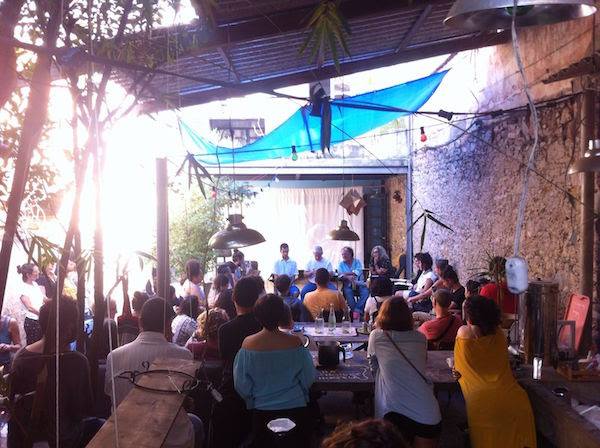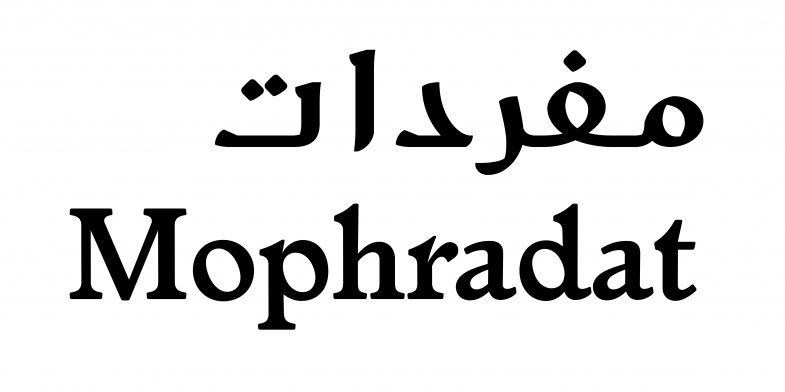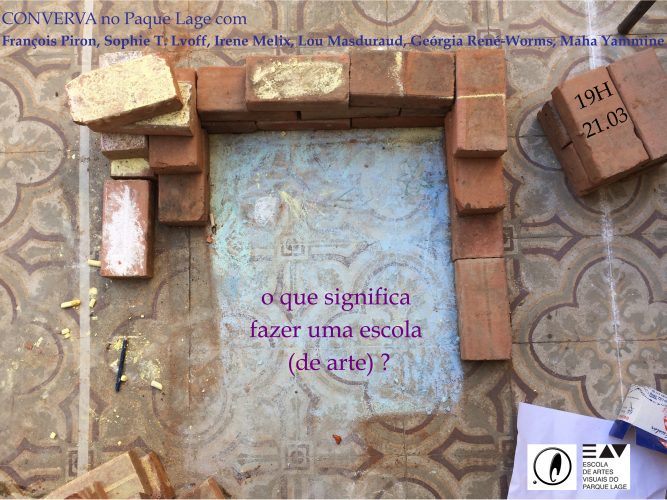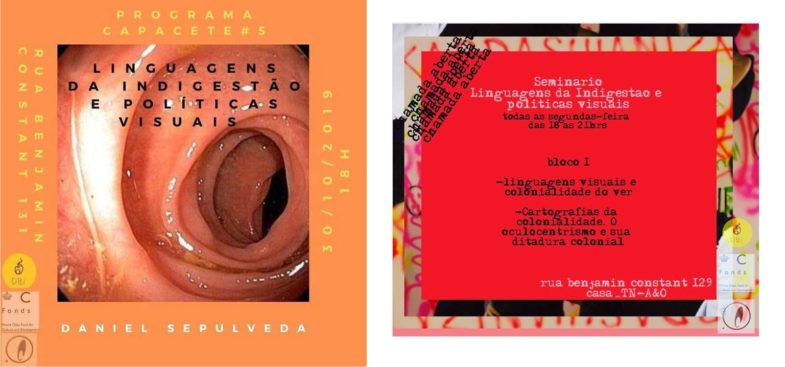
Languages of Indigestion and Visual Policies is the title of Daniel Sepúlveda's seminar and performance reading. The notions of aesthetics, language and visuality are crossed by the white colonial heritage, a factor that determines the ways in which these concepts were materialized throughout the so-called universal history. The seminar “Languages of indigestion and visual policies” is proposed as a place to put these categories in tension, in order to imagine other forms of perception that, in turn, intervene in the field of production of the sensory to disengage / disable oculocentrism and its colonial dictatorship (Valencia, 2019).
This seminar lasts 8 months and will be held in person and online with several invited professors and intervention actions in the public space. We are calling on all artists, researchers and people interested in the topics raised by the seminar. The first block has the following form: -visual languages and coloniality of seeing -cartographies of coloniality, oculocentrism and its colonial dictatorship ** @ laryssamachada will be our first invited teacher in this first block
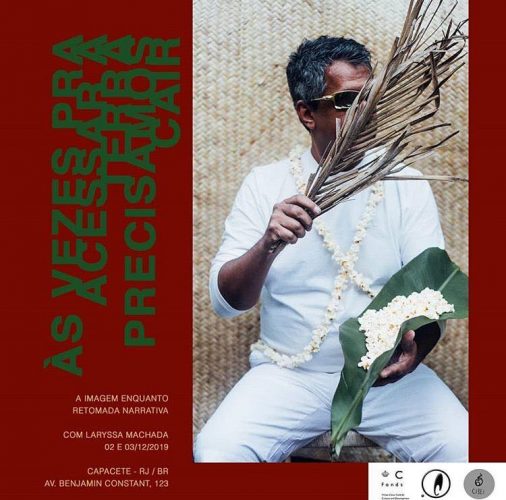
The Seminar on Indigestion Languages and Visual Policies (@cipei_) along with the
# CAPACETE2019_2020 program features:
Workshop with Laryssa Machada * on days 2 (from 17 to 20h) and December 3 (from 16 to 19hr)
SOMETIMES TO ACCESS THE LAND WE NEED TO FALL
the fiction of the end has arrived; One of the paths passed through the leaves is to double time space.
It's all made up now, the world I'll tell you. ///
"Sometimes to Access the Earth We Must Fall" are imaginary (and energetic) rituals of reconnecting
with our [non] memories to enter the future from a critical eye on colonial historicity and the
transit of non-hegemonic bodies through the city. . Through the construction of photoperformances
that include symbols / objects / gestures from Amerindian and aphrodiasporic populations, the idea
is to visit the healing process that racialized bodies build daily from their [re] creations of reality.
In the ambition to redesign the future, it is impossible to do so from the oblivion of these violence.
Thus, we evoke imaginary rituals to realize the axes of cleansing, discharging negative ebos,
historical quizilas.
The purpose of the workshop is to visit the participant dxs memories seeking to double time-space,
building new imagery references and rewriting the historicity of the land we ascended.
|| LIMITED VACANCIES || * @ laryssamachada is a visual artist, photographer and filmmaker.
builds images as rituals of decolonization and reinvention of reality. His works discuss
the construction of image about LGBT's, indigenous people, quilombolas, people of the street.
believe in the weather and storms.
This seminar is made possible by @princeclausfund
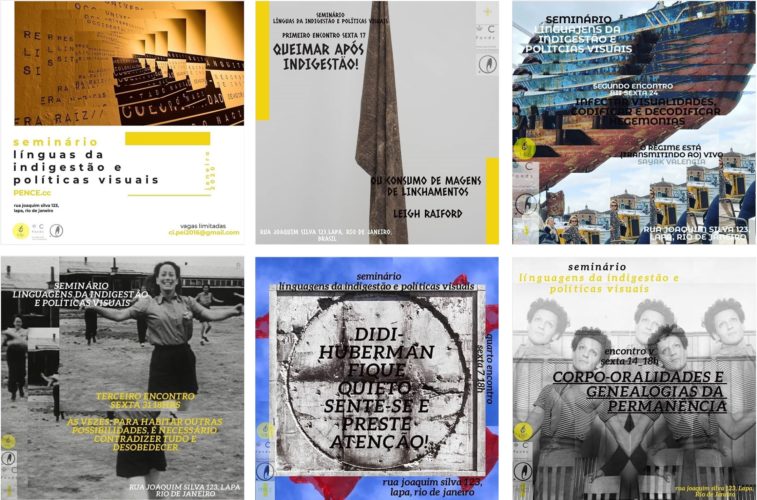 The second block of the seminar Languages of Indigestion and Visual Policies begins in the second week of January.
In collaboration with @pencecoletivo @cipei_ and our resident Daniel Sepúlveda.
The notions of aesthetics, language and visuality are crossed by the white-colonial heritage, a factor that determines the ways in which these concepts were materialized throughout the so-called universal history.
The seminar [Languages] of indigestion and visual policies is proposed as a space to put these categories in tension, in order to imagine other forms of perception that, in turn, intervene in the field of production of the sensory to disable / disable oculocentrism and
his colonial dictatorship (Valencia, 2019) - Burn after indigestion, first meeting of this second bloc. El Consumo de Imágenes de Linchamientos, Raiford, Leigh.
The second block of the seminar Languages of Indigestion and Visual Policies begins in the second week of January.
In collaboration with @pencecoletivo @cipei_ and our resident Daniel Sepúlveda.
The notions of aesthetics, language and visuality are crossed by the white-colonial heritage, a factor that determines the ways in which these concepts were materialized throughout the so-called universal history.
The seminar [Languages] of indigestion and visual policies is proposed as a space to put these categories in tension, in order to imagine other forms of perception that, in turn, intervene in the field of production of the sensory to disable / disable oculocentrism and
his colonial dictatorship (Valencia, 2019) - Burn after indigestion, first meeting of this second bloc. El Consumo de Imágenes de Linchamientos, Raiford, Leigh.
